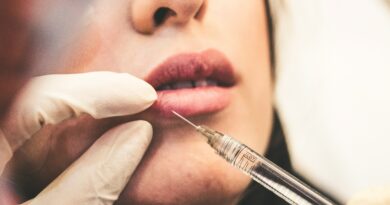Sexual Development In Adolescents And Mental Emotional Changes
While coping with the physical changes, adolescents have also to grapple with social pressures and search for an adult identity. This can be an exciting time when individuals take pleasure in their new appearance and explore new ways of expressing themselves. Not surprisingly, the psychological stresses imposed by so many changes can also lead to sudden, dramatic mood swings and emotional insecurity.
The most common way of dealing with accumulating insecurities is to conform to the peer group. Within this circle of friends, adolescents may discuss various aspects of physical development and sex, and experiment with new modes of behavior. Inevitably, conflicts arise between adolescents striving for independence and parents and other adults anxious to retain control. The revolt against authority manifests itself in many ways. Experimenting with smoking, alcohol, drugs, extreme politics, wild music and clothes, and various forms of antisocial behavior are common expressions of rebellion, with which parents may find it difficult to cope.
Related Stories
Finding And Identity In Teenage Years
Discovering sexuality in Adolescents
In adolescence the sex drive increases and masturbation is common in both sexes. Young adolescents also frequently develop crushes on members of their own sex. Sexual fantasies and masturbation can result in feelings of guilt. Adolescents should understand that both of these are normal, not a perversion nor a threat to health or mental stability.
Curiosity and awaking sexual instincts lead to an increasing interest in the opposite sex. Adolescents need to work out sexual identity that conforms to their wishes and the prevailing moral climate. Experimentation invites the risk of rejection, confusion, and ridicule, which can result in great anguish and color subsequent encounters.
Devising a personal sexual code often demands more maturity than most teenagers possess. Some girls deny their sexuality and become obsessed with “neutral” interests, such as sports; other express their frustration by mooning over pop starts or becoming sexually promiscuous at a young age, often through the pressure of the peer group and anxiety and confusion about sex. Some boys hide their strong sexual feeling for girls behind an affection of disinterest.
The way in which adolescents respond to their sexual awareness and needs depends not only on the peer group but also on the attitudes expressed at home. If parental signals are negative, adolescents might associate sex with guilt, which can lead to problems in adult life. When parents are positive and understanding, it can help adolescents develop healthy sexuality.
Related Link
What to tell teenagers?
Sex education is taught in most schools, but many questions remain unanswered because of the sheer embarrassment of asking them.
• Tell your daughter about menstruation when you think she is old enough to understand so that menstrual periods will not come as a shock to her. Remember that a girl may start to menstruate by the time she is 10.
• Make sure your children are familiar with the basics of male and female anatomy and reproduction so that will not be misled by misinformed friends.
• Make sure they are properly informed about the various methods of contraception.
• Remind them gently of the implications of sexual intercourse, including getting pregnant or fathering a child, and the risks of contracting a sexually transmitted disease.
• Encourage them to feel responsible for their bodies and to discuss sex and the emotional side of relationships openly with you; it can be help them to form their sexual code and standards.
• Do not scorn or ignore the subject of masturbation but place it in the context of normal sexual drive.
If you think this information is useful you can…
Get updates and read additional stories on the Health Orbit Fan Page.
For Guest posts, Sponsored posts and other details, please click ‘Contact Us’ page.




